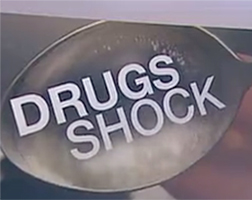Simon Stephens, Director of Case Work at AddictionsUK.com, speaks to Radio Tees on the subject of needle exchange and whether this is an effective solution for tackling drug addiction.
Transcript
Presenter
“For Durham and also Darlington. Simon Stevens is a Director of Case Work for AddictionsUK, which is based in the Northeast. Simon, thanks very much for talking to us. Addiction is an illness, isn’t it? I mean, let’s not, let’s not be fooled by this. It is, it is an illness.”
Simon
“If I can totally reiterate what Ron Hawke said at the very end of his interview that, um, you know, addiction is an illness, as an illness, as a society, we need to offer treatment like we do to any other illness. And at the end of the day, when it comes to addiction, that is really the only proper answer to give.”
Presenter
“But truly, trying to stop drug abuse in the first place is not going to win at all. And you know, looking at ways of accommodating it, is surely the best way to help these people with an addiction.”
Simon
“Let’s first of all, separate drug abuse from addiction. Uh, they’re two different things. Many people use drugs, uh, use the model of alcohol to help yourself understand this. This many people use alcohol. Not everybody is an alcoholic. So there are two different things going on there. You can progress from one camp to the other camp. It’s interesting you have a very difficult choice to make here. If you facilitate drug using, then why would anyone ever seek treatment? Why would they want to get well, because you are making it possible to happen. What creates the desire to get well, is when the crisis in your drug using is such, that really you don’t have another option. We call this reaching the rock bottom. If you’re facilitating, you prevent people from reaching their rock bottom.”
Presenter
“Yeah, I understand what you’re saying. But there’s also always the, uh, the argument I suppose to put towards that. If, if you do something like that, you’re going to push the problem further and further underground.”
Simon
“You’ve got to make choices. Do you want a situation where you know, you provide needles, you provide injection room, which should you prevent, which do give some kind of a solution to your problem, but you never actually solve the problem. You have to keep on doing that all the time. Or do you want to go a stage further and say, actually what we really want to do is, when people are addicted is to create such a pathway, that it naturally leads them to wanting to get well. So you’ve got this choice going on and that’s the choice of society. This is not a choice for experts tonight and things. That’s a choice for society to make and say, how do we want to proceed and help people with this illness? Do we leave people in the illness with all this attendant problems? Um, and remember this stems from the fact that this discussion is stemming from the fact that needles are still found in the street, even though there are needle exchanges, or do you want to actually solve the problem for each individual completely…”
Presenter
“…but then the next generation that’s going to come along, it’s going to be affected by this illness. It’s an illness. So generations are going to be effected by it. It’s…”
Simon
“…just like heart disease.”
Presenter
“So you will never eradicate the problem. This is just an ongoing process. So bearing that in mind, wouldn’t it be better to have, you know, places like drugs rooms…”
Simon
“…build up, you’re going to build up a big reservoir of people who are still using that. Yeah…”
Presenter
“we already have a big reservoir of people who are doing it.”
Simon
“You’ll get a bigger reservoir, if you don’t treat heart disease, then what happens? You get more and more people with heart disease. You get more and more people dying of heart disease. If you don’t treat it. If your argument is we’re just going to allow it to happen, then you’re gonna reach a point where you’re going to have, presumably what society would be, an unacceptable number of deaths and unacceptable number of needles lying in the street and unacceptable number of crime.”
Presenter
“I don’t think it’s allowing it to happen. It’s trying to contain what is already happening…”
Simon
“…but you’ve already argued the whole premise of your program is that it doesn’t work. That needles are still being found in the street.”
Presenter
“What’s your reaction to the figures that we found out and the fact that a lot of people listening to this, half a million needles are handed out per year. That’s going to come as a shock?”
Simon
“It is, it’s going to come as a big shock. Um, this is, uh, if you’re the mother of a child and you’re all listening to this and your child is perhaps just started in the pathway to using drugs perhaps, smoking cannabis, perhaps using legal highs, you might be wondering to yourself, aren’t these people just condoning drug use? Now you could actually put a very strong health argument for saying, it makes sense to give out needles because you prevent the spread of blood borne diseases, such as HIV and hepatitis C and things like that. The problem is there is no neat solution to this. What this particular illness brings up. And one of the aspects of this illness is its chaotic nature, when it’s affects people. And so you can push in as many services you like, like, well we’ll give you clean needles so you don’t share needles so you don’t get hepatitis and things. But due to the chaotic nature of the illness, that message doesn’t always get used by people who are in addiction. Um, you know, please don’t throw your needles on the street. Well, kind of to an addict. That’s the least of their problems, that their point of view, the whole problem with addiction is that people become incredibly selfish. It’s all about them. They, they, they are unable to see society and how they’re damaging it.”
Presenter
“Okay. Simon Stevens, thank you very much for talking to us.”

